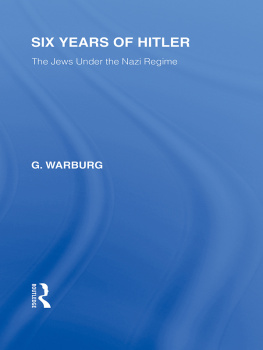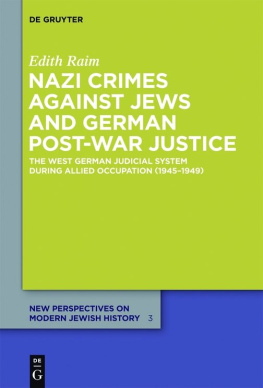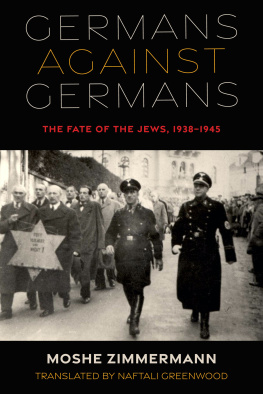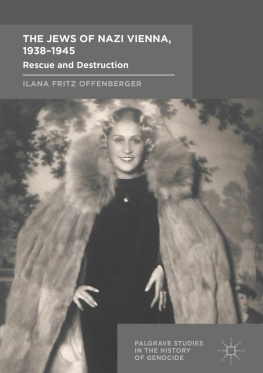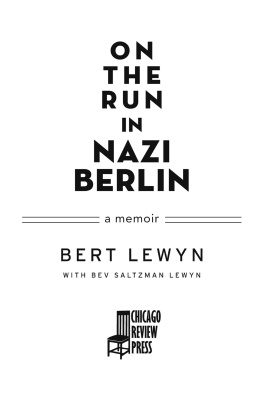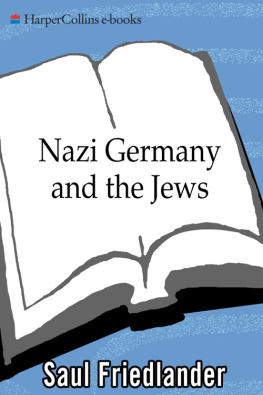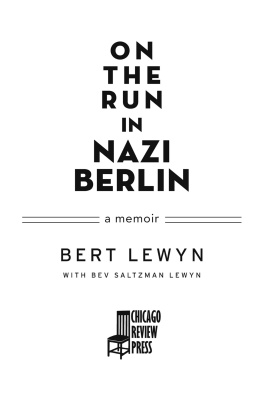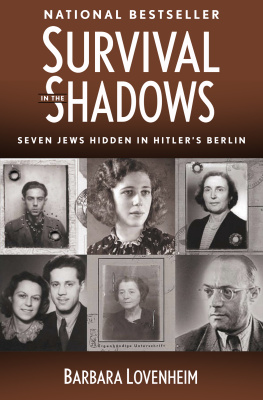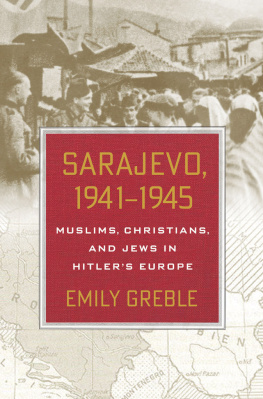First published in 2019 by
Berghahn Books
www.berghahnbooks.com
2019 Richard N. Lutjens, Jr.
Except for the quotation of short passages for the purposes of criticism and review, no part of this book may be reproduced in any form or by any means, electronic or mechanical, including photocopying, recording, or any information storage and retrieval system now known or to be invented, without written permission of the publisher.
Library of Congress Cataloging-in-Publication Data
A C.I.P. cataloging record is available from the Library of Congress
Library of Congress Cataloging in Publication Control Number: 2019026291
British Library Cataloguing in Publication Data
A catalogue record for this book is available from the British Library
ISBN 978-1-78533-455-9 hardback
ISBN 978-1-78533-474-0 open access ebook
An electronic version of this book is freely available thanks to the support of libraries working with Knowledge Unlatched. KU is a collaborative initiative designed to make high quality books Open Access for the public good. More information about the initiative and links to the Open Access version can be found at knowledgeunlatched.org.
This work is published subject to a Creative Commons Attribution Noncommercial No Derivatives 4.0 International License. The terms of the License can be found at https://creativecommons.org/licenses/by-nc-nd/4.0/. For uses beyond those covered in the license contact Berghahn Books.
ACKNOWLEDGMENTS
This book has been years in the making. Indeed, I think it was already in the making years before I ever consciously considered the matter, and I am thankful beyond words for those many individuals and institutions that helped me realize its completion. To Mindy, who in fifth grade introduced me to Art Spiegelmans Maus, setting me upon a path of study that I could not have foreseen at the time: thank you. To my college advisors J. West and Bettina Matthias: I cannot believe I ever considered studying anything other than history and German. J., thanks for encouraging me to take beginning German and for fueling my passion for history. Bettina, thank you for instilling in me my love for the German language and for humoring me in my desire to learn Stterlin: perhaps you knew how much I would need it one day.
My sincerest thanks to my Doktorvater, Peter Hayes, for his guidance and encouragement over the years and for helping me to deliver my best. To Benjamin Frommer and Yohanan Petrovsky-Shtern, thank you for all of your years of help and support. Fortunate, indeed, was I to have these three outstanding individuals on my dissertation committee. Also, to the Junior-Faculty Reading Group at Texas Tech University: suggestions for the introduction to this book were helpful beyond words.
The time I spent in Berlin a decade ago conducting the opening stages of research for this book were some of the most fruitful and intellectually stimulating I have ever had. They were also the most surprising, as one never knows quite where a trip to the archives will lead. My especial thanks to Martina Voigt of the Gedenksttte Stille Helden, whose advice opened up to me so many avenues of inquiry and discovery. Thank you for putting me in contact with Mrs. Ruth Gumpel, a central figure in this book. My meeting with Mrs. Gumpel was as enjoyable as it was edifying. I will always remember our meeting and your unsurpassable Gastfreundlichkeit (especially the schnitzel). My grateful acknowledgments to the excellent archivists of the Zentrum fr Antisemitismusforschung, which has a truly impressive collection of testimony from survivors in hiding, in Berlin andthroughout Germany. Also, my sincere gratitude to the archivists and staff at the Landesarchiv Berlin and at the Stiftung Neue Synagoge BerlinCentrum Judaicum.
The years of travel and research for this book would not have been possible without extensive support from two invaluable sources of research and funding. The study resulting in this publication was in part assisted by a grant from the Berlin Program for Advanced German and European Studies jointly administered by the Freie Universitt Berlin and the German Studies Association with funds provided by the Freie Universitt Berlin. However, the conclusions, opinions, and other statements in this publication are mine, and not necessarily those of the sponsoring institutions. My especial thanks go out to Karin Goihl of the Berlin Program for her unstinting support of a frightened graduate student unsure of where or how to begin conducting his research in Germanys extensive (and occasionally formidable) archives. In addition, this book was made possible (in part) by funds granted through a Takiff Family Foundation Fellowship at the Jack, Joseph and Morton Mandel Center for Advanced Holocaust Studies of the United States Holocaust Memorial Museum. The statements made and views expressed, however, are solely my responsibility. I am also grateful to the Emerging Scholars Program at the Mandel Center for Advanced Holocaust Studies for its support in the preparation of the manuscript and of the book proposal. Indeed, my seven months spent at the United States Holocaust Memorial Museum conducting research for this book were some of the most productive, and I encountered some wonderful and truly helpful people there. In particular, to Vincent Slatt and Megan Lewis: thank you for all of your help and the great conversations.
Support for this book also came from a variety of institutions and individuals over the years, not all of them academic. To the fine folks of Bills, One World, the Hansa Clipper, and, most especially, Grenz Eck: sometimes it is good to step back, take a break, and clear ones head. Thank you for allowing me to do so and for the stimulating and unforgettable conversations. Thank you also for giving me a corner in which to read and write, to be around others while also being in my own head. I needed it. And last of all, but certainly never least in my head and heart: my fantastic friends and loving family, who have been with me every step of the way and who will never again have to listen with a patient ear while I explain how the writings going. To my brother Andrew, my aunts, Paulette, Sheila, and Elaine, and my Uncle Frankie: I am truly blessed. Finally, this book has been written, because of the love of my Nana and Pap and, above all, my Mother and Father: this work is dedicated to you.


